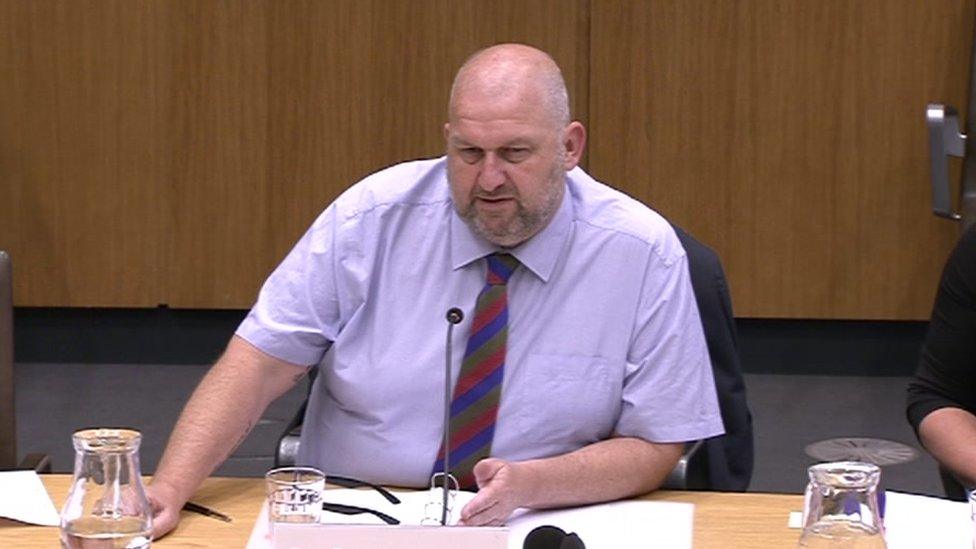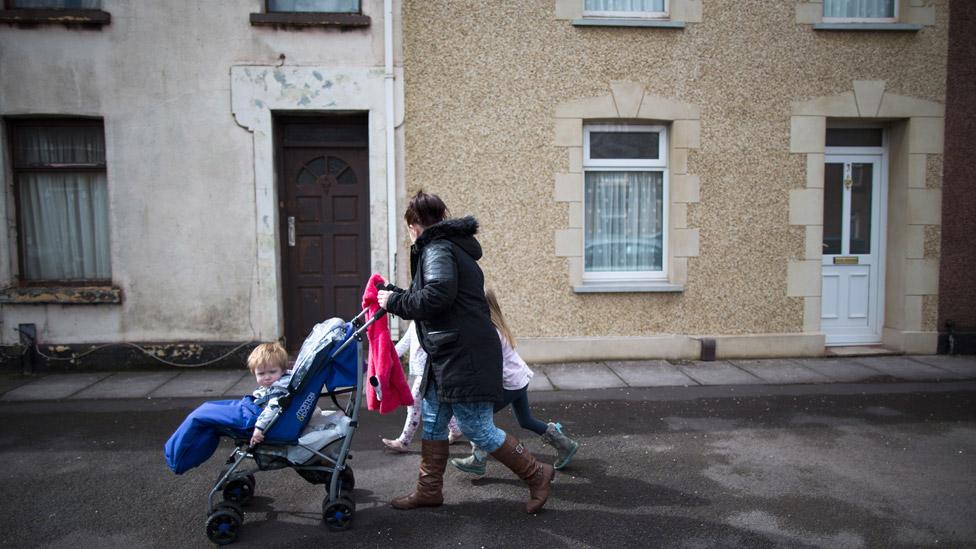Axed Communities First scheme had 'near impossible task'
- Published
- comments
'Communities First empowered people but didn't tackle poverty'
A scrapped Welsh Government anti-poverty scheme had a "near impossible task", a report has said.
An assembly inquiry into Communities First said a single programme never had the ability to make "significant in-roads" into reducing poverty in Wales.
Communities secretary Carl Sargeant ended the programme in February, saying performance had been mixed. AMs found a total of £432m was spent since 2001.
The Welsh Government admitted it had "not had a significant impact".
Communities First supports anti-poverty programmes in 52 areas across Wales, but its funding will end next March.

The report followed an inquiry into the lessons that could be learned to help future anti-poverty schemes
The report from the equality, local government and communities committee found that despite "a significant amount of public money" having been spent, it was "difficult to make an overall assessment of the success of the programme".
It said the scheme was "set the near impossible task of reducing poverty, which could never be achieved through one single programme".
AMs said it was regrettable that when the scheme was launched it did not have "baseline data" that its success or failures could be assessed by.
"The basic flaw at the very start of the programme has persisted throughout its life," they argued.
A wide-range of indicators used to measure performance were introduced for the scheme in 2012, but one witness from Caerphilly council told the inquiry that having 102 indicators meant in practice there were none.

Carl Sargeant axed the Communities First scheme last February
The report also said the decision and announcement of its closure should have been better managed after AMs learned many staff first heard about the phasing out of the scheme through the media.
There was also a concern that community centres could be lost without ongoing funding from the scheme.
"While Welsh Government capital funding is welcomed, more needs to be done to audit community assets in the interim to ensure they do not close until funding can be secured," AMs said.
Despite funding ending next March, a legacy fund of £6m a year is set to be made available for two years for projects which currently receive money, with a further two years' funding also possible.
The report added:
uncertainty for staff caused by the way the announcement was made has had a detrimental impact on their work
councils should identify programmes delivered by Communities First which should be delivered by other public bodies and the responsibility for them should be transferred
there is a significant risk the closure of Communities First will adversely affect other programmes dependent on the scheme

There are 52 Communities First areas in Wales, including four in Newport
John Griffiths, equality committee chairman, said Communities First had "done great work in communities across Wales".
But he added: "We are concerned that the Welsh Government must learn lessons for future tackling poverty activities, ensuring progress is measurable, based on evidence of what works, and that the successful elements of Communities First, which could be delivered by other public bodies and are valued locally, are transferred to other public services to deliver."
A Welsh Government spokeswoman said: "The Communities First programme, whilst having a positive impact on many individuals, has not had a significant impact on poverty levels in Wales which remain stubbornly high."
She said the government was working to set the principles for the legacy fund "which will enable some of the most effective aspects of the programme to continue".
An extra £4m a year will be given to the Community Facilities Programme from 2017/18, with priority given to Communities First areas, to help protect community assets, while a £12m a year grant will be launched to support those "furthest from the labour market", she added.
- Published21 June 2017

- Published14 February 2017

- Published14 March 2016

- Published17 March 2015

- Published14 June 2015
